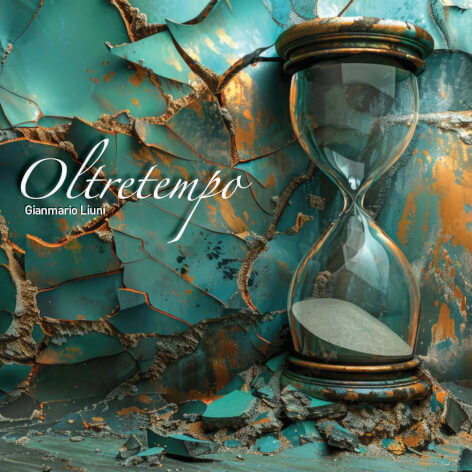The heart of the project is a musical reflection on time and its purpose or destiny beyond time.
The project connected to this intent, divided into two parts, includes a second part that pays tribute to the great composer Philip Glass.
Scrolling through the tracks, the first is I Cavalli del Tempo [The Horses of Time], a literal translation of the title of the poem by Jules Supervielle (1884 -1960).
Il Tempo Edace [Edacious Time] is the subtitle of Cesare Cavalleri's biographical essay: Un Incontro [An Encounter] (Ezra Pound, Venice, March 29, 1971), which is part of the "Sintomi di un contesto" collection (Milan, publisher Mimesis, 2019).
Memorie Lontane [Distant Memories] is past time that remains in one's memory, and the relationship between past time and memory is the great mystery of our psyche.
Then come the four seasons, an inevitable and necessary marking of our mortal time as much as day and night.
Next are Spring in Town, Late Summer Waltz, Autumn Cold Red and Winter Tree. These last two compositions, present in the second part of the project, were inspired by Philip Glass's “Etudes for Piano” n.16 and n.5 respectively, which are cited as an introduction.
Il Tempo della Grazia [The Time of Grace] is inspired by Verse 15, Chapter 5 of St. Paul's Letter to the Romans. The time of the Savior's coming mysteriously divides time into a before and after Him.
Evidently, the time of each of us is always shared, participated in, and stimulated by the experience of another, but when time is experienced in an invincible relationship of love, it is mysteriously shared in a profound and special way. From these premises comes Nel tuo è il mio tempo [Your time is my time] where I happily hum the melody along with the sax.
The second part of the project opens with the title track Oltretempo [Beyond Time]. It is the existential gamble to believe in it or not, and in what way it changes the destination and meaning that one gives to one's life.
The theme of this piece is divided into two sections, in which the first is taken from the central theme of the following piece for piano solo Time's Labyrinths.
Recalling the great and beloved J.L. Borges, if time often winds in unfathomable labyrinths, beyond-time is both our destination and hope, Ariadne's thread of our liberation.
Oltretempo [Beyond Time] is followed by the aforementioned Autumn Cold Red and Winter Tree, which complete the compositions for quintet, making room for pieces for solo piano that conclude the project.
The four compositions for solo piano are inspired by and pay homage to beloved composer Philip Glass, also through the use of some of his piano techniques that most distinguish him.
Time's Labyrinths has already been mentioned. Il Tempo della Pazienza [The Time of Patience] refers to Il Tempo della Grazia [The Time of Grace] and Verse 26, Chapter 3, of St. Paul's Letter to the Romans (Trans. CEI 1974). It is the time before the coming of Christ the Savior, but through patience, to be suffered, one must understand God's suffering in the face of mankind's rejection, the Father's suffering for the estrangement and loss of his son, which will bring him to "give his only begotten Son, that whosoever believes in him should not perish but have eternal life." (Jn. 3:16).
Eraclito [Heraclitus] brings us back to the well-known observation of the passing time that leaves nothing unchanged. The homonymous poem by J. L. Borges, Heraclitus (“The Iron Coin”, 1976) inspired this composition.
However, after three compositions that dwell on a more painful reflection, I wanted to definitively clarify that, in any case, the time given to us is always - no matter what - a gift from beginning to end and, as expressed in the opening by T. S. Eliot, a possibility of redemption.
I end these notes by addressing the masterful musicians who contributed to the success of this project through their prestigious art. Giulio, Marco, and Martino: I am honored to call you my friends and thank you for having joined me on this musical journey through time. Among the architects of this success, I must add a fifth master, our sound engineer Alberto without whose art - because that is what it is - none of our efforts would reach you.



